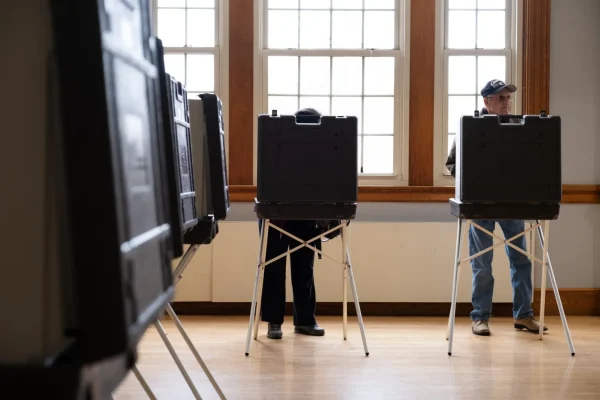Ruth Bader Ginsburg has died, democracy could follow
It is not a question. It is not a debate. With the death of Supreme Court Justice Ruth Bader Ginsburg, the fate of American democracy hangs in the balance.
Nine individuals sit on the Supreme Court, the head of the judicial branch who decide how to interpret the United States constitution in some of the most complicated cases the country has ever seen. The cases range from obscure to important, from heartwarming to terrifying. Important cases like Roe v. Wade, which declared Texas’ attempt to criminalize abortion illegal, or Obergefell v. Hodges, the case which officially declared gay marriage as a nationwide right.
But Obergefell v. Hodges won by a five to four margin. Five Supreme Court justices voted in favor of gay marriage being a right. One of those five has just died.
Under a usual administration, the stakes of a judicial appointment would be negligible. Instead, as we mourn the loss of RBG, we fear that our country’s democracy may come to a crashing halt.
Since becoming president, Donald Trump has pushed through the most conservative justice currently on the court and suggested that politicians like Ted Cruz or Tom Cotton be appointed once there is another opening. Well, there’s an opening now. And one of his suggestions, Sen. Tom Cotton, publicly supported overturning Roe v. Wade after hearing the president’s support.
The President of the United States has repeatedly insisted mail-in voting is fraudulent in an effort to discourage those who would vote against him. Trump has done his best to throw the results of November’s election in doubt. He has suggested it be delayed, suggested his voters commit a felony by voting twice and went so far as to completely ignore the CDC, insisting a vaccine will be ready by the election.
This president has repeatedly been at odds with the Supreme Court. When the Supreme Court upheld the DACA program, allowing young undocumented immigrants to stay in the United States, the president implied that the court didn’t like him. In June, Attorney General Bill Barr fired U.S. Attorney for the Southern District of New York Geoffrey Berman at Trump’s request, for allegedly investigating those close to Trump.
This president, and the Senate along with him, must not be allowed to push another Supreme Court justice through to the court before the election in November.
“The American people should have a voice in the selection of their next Supreme Court Justice. Therefore, this vacancy should not be filled until we have a new president,” said Senate Majority leader Mitch McConnell, in reference to former President Obama’s nominee for the Supreme Court, Merrick Garland, in February of 2016.
A days later on Fox News Sunday, McConnell said that Senate Republicans are “following a longstanding tradition of not filling vacancies on the Supreme Court in the middle of a presidential election year.”
Yet today, in response to the sudden death of Justice Ginsberg, McConnell insisted that: “Americans reelected our majority in 2016 and expanded it in 2018 because we pledged to work with President Trump and support his agenda, particularly his outstanding appointments to the federal judiciary,” he said in a statement. “President Trump’s nominee will receive a vote on the floor of the United States Senate.”
In a statement, Trump said that “Ginsberg demonstrated that one can disagree without being disagreeable towards one’s colleagues or different points of view. Her opinions, including well-known decisions regarding the legal equality of women and the disabled have inspired all Americans.”
But in the final moments of Justice Ginsberg’s life, she expressed what is the only right action.
Days before her death, Ruth Bader Ginsburg told her granddaughter Clara Spera: “My most fervent wish is that I will not be replaced until a new president is installed.”
For the sake of Justice Ginsberg’s legacy, the President of the United States must not attempt to push a Supreme Court justice nominee into the courts until after the election. And for the sake of Justice Ginsberg’s legacy, the U.S. Senate should stand against Senate Majority Leader McConnell and refuse a vote on any nominee before November. And in the meantime? Every American across the country should do all we can to make her wish come true.








